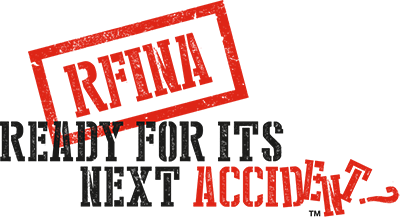Safe Repairs Through Regulation
Over the last few weeks I saw an article and a symposium announcement that together showed a possible path to the future.
In this Collision Repair magazine article from mid July; Brad Mewes’ views on the current stage of industry consolidation are discussed and explained with extensive use of quotations. The research and business analysis he draws on is broad based and not specific to collision repair. If what he forecasts comes to pass there will be a very significant shift in power and the collision repair world will look a lot different.
Today the insurance companies have a tremendous advantage over repairers because each one controls a huge volume compared to any of their suppliers. A strong independent at $5MM a year is less than a blip, a good regional MSO at $50mm and even one of the big three or four at $500MM+ are only a fraction of what the insurance company will pay out in a year. This imbalance gives a significant negotiating strength to the insurer with their ability to play one supplier against the other. They are very happy to put all the problems and issues back to the supplier using the blunt threat of moving their business. With many small players looking for business it is not hard for the insurers to use this as a key part of their cost control model.
In the next phase of consolidation with 3 or 4 large entities controlling the repairer side of the market each will start to approach the scale of the insurers and will be much less vulnerable to threat.
On the one hand this is a good thing for the vehicle owner as there may be some standardization of the repair experience, but on the other hand it may be a problem, because if the repair experience is not great there will not be anywhere easy to complain to. When was the last time you got great service and an excellent result from a call to a cell phone company?
While these big players are controlled to some extent by financial and anti-trust regulations there is currently very little regulation controlling or monitoring the physical repair.
This is an announcement about the Technology and Telematics Forum on August 8th at NACE.
Most of the topics listed should be familiar to progressive industry participants. Of interest however, is the 30 minute slot about Government Intervention and the possible need for legislation around repairs. My belief is that this intervention will have to happen and when it does insurers, consolidators, flat rate techs and the last independents standing will face a very different world with repairs that have to signed off by a qualified technician holding a valid license. Aviation industry regulation provides a very good model for the safe repair of today’s complex cars.
 The 2017 car can be repaired without regulation today but planes (and the dog) need licensed technicians signing off on repairs
The 2017 car can be repaired without regulation today but planes (and the dog) need licensed technicians signing off on repairs
Government regulation is very hard to apply to a very large number of independent facilities as enforcement would be unworkable. Large suppliers could be mandated to provide very thorough reporting and auditing on their repairs and operations and they could afford to do this. A compliance office overseeing 500 locations would be a manageable cost per location while the compliance burden could well be the final straw for an independent.
The consolidators that Brad describes are probably already in the concept planning stages of their Compliance Departments.
